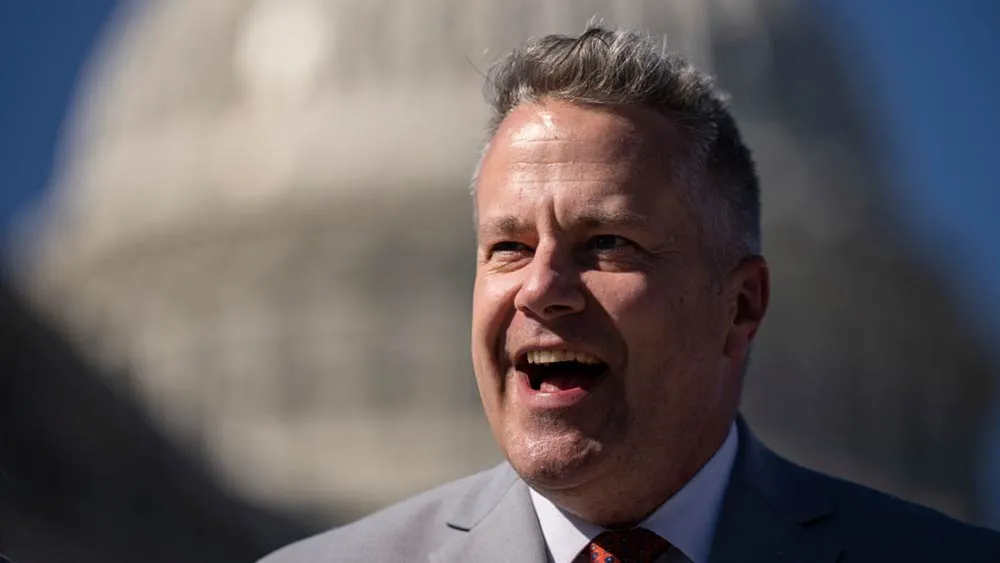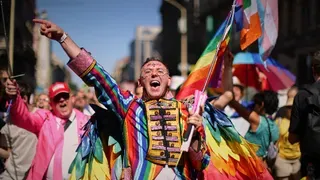June 5, 2016
Trans on Campus :: Florida Atlantic University Students Share Their College Experiences
Brittany Ferrendi READ TIME: 6 MIN.
Alumna Hila Case never considered herself a male, even though her birth certificate said otherwise.
In 2012, one semester into her graduate bioengineering program at Florida Atlantic University, Case made the decision to transition fully into a woman.
"I felt desperation, but also a sense of hope. I knew I had to do it if I ever wanted to feel happy," she said. "Everything seemed very time critical ... It was an intensely emotional period of my life."
Case isn't alone. Whether "out" as transgender or not, there are students who feel they weren't born in the right body - and several of them choose to transition while attending FAU.
Transgender students have resources available on campus to get support, such as Lambda United, a student-run organization that has attempted to meet the needs of lesbian, gay, transgender, queer/questioning and intersex students since 1990.
Case said, "Transitioning on campus was a helpful experience for me, because it felt safer than anywhere else I knew and I had places to go for support."
Students also have the LGBTQA Resource Center, a safe space for all students located on the second floor of the Student Union within the Office of Diversity and Multicultural Studies.The resource center has been a part of the Office of Diversity & Multicultural Affairs since spring of 2011.
"The Resource Center is a place but the people are who make it a safe and welcoming environment for the students," said Artie Jamison, the associate director of Enrichment Programs for First-Generation and Underrepresented Students, via email.
"As a part of the larger ODMA office family, we make a conscious effort to ensure that the space is one in which students feel they can come and share their experiences with others who might be facing similar challenges."
Case said of her home life: "I had to know everyone's schedules and determine what days and what hours it was safe for me to present as a woman. I really didn't like it."
She said she felt that transitioning on campus was easier than transitioning anywhere else.
"I was just learning how to be me, and I'm sure I came off incredibly awkward. That didn't seem to matter, and I would guess many people were in a similar place of self-discovery," said the alumna.
Although Case received support, not everyone was positive.
"There was only one time where someone got very close to me and said 'You're f*cked up,' as he walked by," she said. "I was really shook up. It made me feel very shattered."
When it came to her experiences in the classroom, Case described everyone as kind. "I never told any classmates I was trans, but would some days show up presenting as a different gender. It was never an issue."
Brendon Lies, a former FAU student who left in 2014 and a former art director of the University Press, went through a similar process during his transition on campus.
"Honestly, the on campus support changed my life," he said. "At the time when I came out, I was living with my (male) fiance, who was very aggressively opposed to the idea of his pretty little woman cutting her hair and not shaving. "
According to Lies, he had to stay with his then-fiance so he could continue going to FAU - and he felt he had to stay in the closet. To make sure his fiance wouldn't find out, Lies slowly cut off half of an inch of his hair every three days and had to keep his everyday appearance a secret.
"In the morning, I would wake up and do my makeup very lightly, dress in a skirt, throw on a cute hat, and shove a plaid shirt and jeans in my pocket," he said.
"As soon as I kissed my fianc� goodbye, I'd get in the car, drive 30 minutes to school, then change clothes in the car and remove my makeup. And before heading home that night, I'd make sure to change back."
It was for this reason that Lies loved the LGBTQA Resource Center.
"Not just because it gave me support from other students going through the same thing, who didn't hesitate to call me Brendon or hang out with me, but because I had a place where I could be myself without feeling ashamed."
Jamison said she feels safe outside of the resource center, but could not account for all transitioning students.
"I have not been made aware of any specific incidents however I cannot say that every student who identifies as trans feels safe," she said via email.
Similar to Case, Lies was not very open initially about his transition to his classmates on campus.
"To be honest, I was afraid that everyone would harass or hate me if I came out, so I kept it to myself until the last day of the semester."
This fear grew when it came to which restrooms Lies would use.
"I didn't feel like I belonged in the women's room but I felt too feminine for the men's room," he said.
"I was heading towards a stall when I began to double guess myself - and suddenly a woman walked in. I bolted from the women's room, and I didn't stop running until I was halfway across campus."
Lies explicitly came out to one of his classes - and received a supportive response.
"There was only one class I came out to [out loud], because we were very close and it was actually shocking how kind my classmates were to me! It made me wish I had come out sooner," he said.
Even though Lies still had to change in his car to hide his transitioning from his fianc�, he said he felt liberated.
"Everything felt so much more clear, and instead of being confident because I had everyone else's approval, I walked with my head high knowing I was finally the guy I always wanted to be. And that really made it all worth it."
In addition to the LGBTQ Resource Center, transgender students have other options available.
Roman Alexander, a freshman studying social work and the public relations of Lambda United, said, "[Lambda United] is the LGBT organization on campus and the goal of it is to provide a safe social atmosphere for LGBT students and to have some activism going on."
Although Lambda United is beginning to make more headway as an organization, Alexander commented on its shortcomings.
"Most people are accepting of trans students, which is more than trans students get other places, but ... We don't help trans students get resources, or look into getting them therapy or anything, which is something I'm trying to change."
Former president and transgender student Benjamin Brage created Benji's Closet, a clothing drive for transgender students during his reign. The clothing drive has since died down, but still remains a part of Lambda United.
Alexander hopes that Lambda will be able to provide more resources in the future, such as chest binders for transgender males and clothing options with a wider size range.
Alexander had his own issues to deal with while transitioning on campus - namely his current race, class, gender and sexuality professor.
According to Alexander, the professor referred to him by his birth name in front of the entire class, even after he had already told her his chosen name and gender pronoun.
"It would be one thing if she didn't know, but I did explicitly go up to her that morning, right before class, and explain everything to her so she knew. And this was a race, class, gender and sexuality professor so she should have known better than to use my birth name at all to begin with."
Other than the issues concerning his professor, Alexander claimed to only have a few problems with other people while on campus.
"I have had some instances where I was trying to use the bathroom and I got either called out or I got laughed at or made fun of," he said. "That's happened a couple of times."
He added: "Fortunately, no one's confronted me and I haven't been physically assaulted or anything so that's a plus, but I wouldn't say it's been overly positive."
Alexander officially came out as transgender seven months ago.
"I'm still not out to my family other than my sister. I came out to my friends when I started here at FAU," he said. "Like, I never introduced myself as my birth name, I only used my chosen name ... I just started telling my teachers about it - last semester I didn't."
When it comes to advice for students who may have difficulty transitioning on campus, Jamison encourages students to be familiar with on-campus resources.
"Students can be faced with any number of challenges and being a part of a supportive community and having someone to discuss those challenges with can be helpful in any number of ways," she said. "I hope that students would feel comfortable utilizing our office and connecting with someone here so that they know they are valued and supported members of the FAU family."




